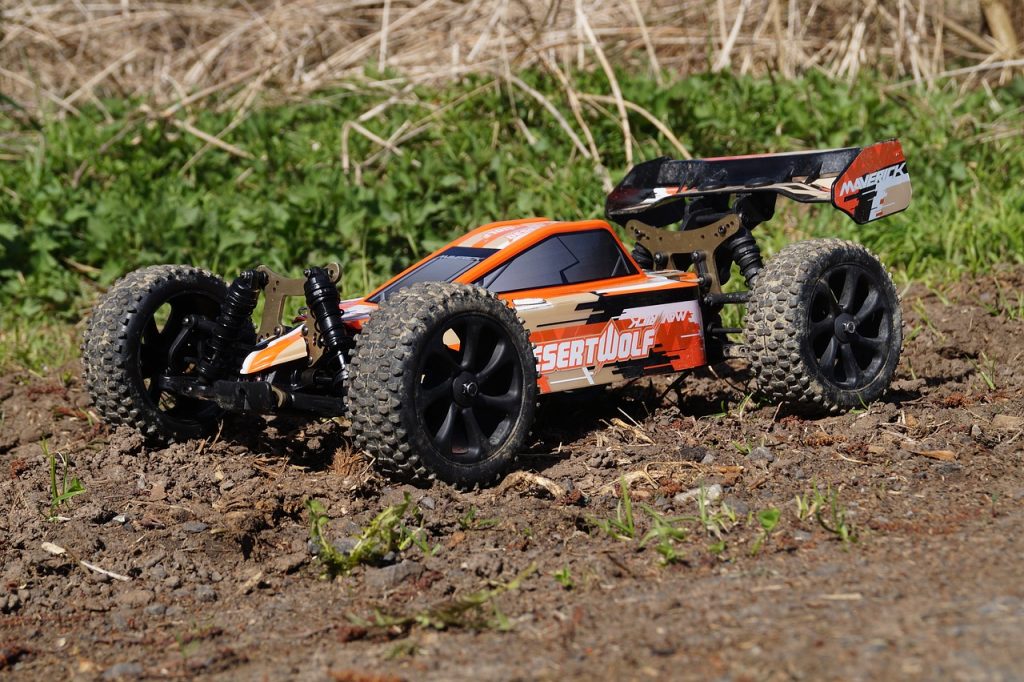RC car and bike racing is a great way to get your vitamin D outdoors and demonstrate your skill without having to exert yourself. RC cars and bikes are powered by battery or petrol motors and these days can really shift.
Skills – Strength: 1, Balance: 1, Flexibility: 1, Agility: 1, Coordination: 5
Time needed: 1 hour, Cost to try: £free
There are over two hundred Clubs affiliated to the BRCA (British Radio Car Association) where people can go to race radio controlled cars and bikes; in addition the Association has around nine thousand members!
In addition there are those who own radio controlled vehicles but use them just for fun, as well as the toy radio controlled cars, but those who are members of the BRCA tend to be people who enjoy the competitive nature of the sport and the social interaction that goes with it. As in full size racing there are three categories, Circuit, Offroad and Oval, with the Clubs tending to run in one.
Different Types of RC Cars
In addition there are different scales or size of car, ranging from the 1/18th Micros, through 1/12th, 1/10th, 1/8th to the largest scale which is 1/5th or 1/6th that we just call Large Scale. The smaller scales, Micros to 1/10th, are driven by electric motors powered by rechargeable batteries and tend to be used indoors on carpeted tracks, whilst the larger scales, including one form of 1/10th, are powered by internal combustion engines and use fuel, so are run on purpose built outdoor tracks. The 1/10th electric circuit and offroad cars can be run both inside and outside. The various scales and types of racing are known as Sections, with each Section having its own organising Committee within the BRCA, responsible for the Section rules, organisation of National events and, at the AGM when all the drivers from that Section get together, electing the Committee to run things for the next twelve months, before going on to elect the main Association Officials.
It is very easy to get involved in radio controlled racing, but first you need to find out what your local Club races, as not all Clubs race all types of car and a wrong purchase could find you having to travel to race. Check the BRCA web site www.brca.org and look down the Club menu to find your nearest Club. Most have a direct link from the site, so you can easily find out what they race, where and when, then go and pay them a visit before you purchase.
Buying a RC Car
Buying a car need not be that expensive, but remember you will need radio equipment to control it, as well as battery pack or packs to power it and charger to charge them if it is of the electric variety, and if it an i.c. car you will need fuel and a means of starting it. You can be racing in the electric car classes for £140 to £160, but you may need £200 plus to start in the i.c. classes unless you can pick up good second hand equipment from a Club member. Even at the most expensive end of the sport such as Large Scale, where 23cc two stroke engines power the cars, there is a class for Eco standard out of the box cars, which limits them to under £600 less radio, this of course is buying new. In most cases the cars come complete as rolling chassis with only the power source and radio to install, some will come as a complete package with everything, including radio gear already installed; these are referred to as RTR (Ready To Run) by the manufactures and model stores, but it is best to check with your local Club before any purchase is made as they will be able to point you in the right direction, as well as to the best place to make your purchase.
Radio controlled racing is open to all, with no particular skill apart from enthusiasm required. Racing is done at Club level, moving on to inter-club or Regional events, national events, and at the top of the list European and World Championships. Clubs cater for the novice, with help and advice always on hand and will help to move those with the ability and desire on to the next stage.
Go out and find your local Club and join in with hundreds of others. Your main link is through the BRCA at www.brca.org.
Courtesy of Mike Chilvers (BRCA PRO)
